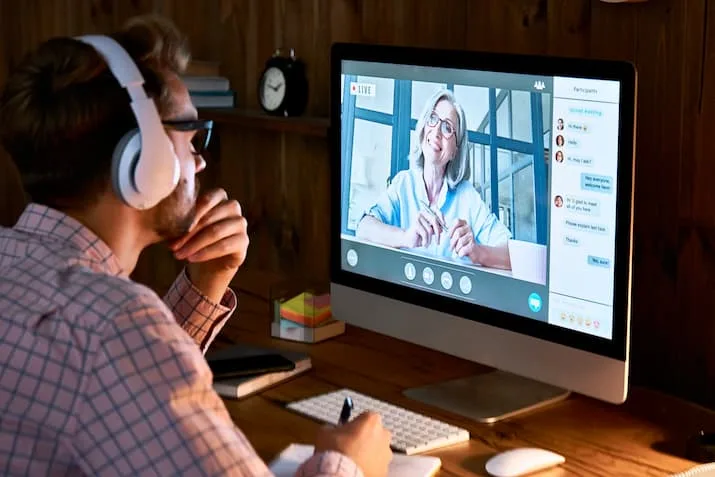11 tips for surviving the school holidays as a student/parent
By Open Universities Australia
<span>We asked a group of parents how they plan to study and maintain their sanity over the school holidays. Hopefully, you'll walk away with coping strategies you can put into practice too! </span>
Look at yourself in the mirror and say, ‘I am amazing’. Because playing the role of parent, worker and student—often simultaneously—is a superhuman feat that the world needs to acknowledge more often… when it’s not trying to sabotage your sanity by springing school holidays on you.
We can’t wish the holidays away, but we can consult a few parents for their survival tips and hacks. Here goes!
1. Rope in your village
You know the saying, ‘it takes a village to raise a child’? Make a list of everyone in your village—grandparents, doting aunts and uncles, your best friend, the neighbour whose kids are hopefully best friends with yours.
Line up plan A and plan B babysitters for days when you’ll need a long stretch of study time.
Clare Monte, a senior copywriter, UX/UI design student and mum to a 6 and 3 year old, suggests one better.
“My parents live out of town, and my eldest would definitely love hanging out with his grandparents and being on their arm—I’m thinking about letting him live with them for part of the holidays.”
2. Remember the calendar is your most important ally
As soon as you receive your course timetable, block off milestone dates—think assessments, exams and project submissions—as well as lead time for research, study and writing. Where there is crossover with school holidays, consider taking time off work (in combination with calling on your village) for the Holy Grail of quiet, learning-only time.
3. Find activities (less than a day long)
Arts institutions almost always have kid-specific programming, whether standalone or as an adjunct to a main exhibition.
For example, The National Gallery of Victoria has, at time of publishing, at least five kids’ events, all free. The Little Food Festival, Australia's first and only food festival for kids, will have cooking classes, bush food lessons, craft activities and more in Melbourne. Zoos Victoria is free for kids under 16 during school holidays. These are all great activities for a nominated adult to bring your kids to.
For more ideas, have a look at your city’s What’s On page—here are Melbourne’s and Sydney’s.
4. Seek out school holiday programs
You already knew this one, didn’t you? But the key here is to book early.
“I cannot stress enough that these fill up really quickly,” says Clare.
“Usually, you book these by the day… you could book several different programs and build your own school holiday schedule. It’s also really important to check that their staff are vetted properly,” she continues.
5. Form a pool with other parents
“So, say you’re in this ‘pool’ with four other sets of parents. One parent takes all the kids for a day while the rest run errands, work or study in peace,” states Clare.
“Big plus—instead of taking ten days of leave from work, you might be able to take just two.”
Of course, you’ll have to negotiate the rules with your pool members—a regular day per week with a roster? On an ad hoc basis? If so, with how much notice?
6. Create a school holiday program planner
Lisa Price gets her family together and brainstorms ideas, activities and social outings. Everything goes into a family calendar that’s hung in the kitchen and decorated with stickers and drawings. That way, everyone in the family knows what’s happening and when, which helps her plan her time and feel in control.
A bonus tip from Lisa: she uses Paddlepop sticks with a (free or paid) activity written on them for lucky dip days.
7. Block out a regular but realistic time to connect with your kids
Some experts recommend starting each day with play time—by satisfying their need for connection early in the day, they’re less likely to feel the need to interrupt you while you’re working or studying.
"I do this. Play time is followed by some solo time (within sight) and lunch. Then, while my younger one sleeps, I power through work and we do stuff together again in the afternoon,” says Clare.
8. Wear them out
This is sage advice that can probably be applied year-round! Clare says, “Make sure they get enough physical activity so that they go bed on time. For example, choose a tennis school holiday program. Of course, you’ll need to balance that with days of rest.”
9. Encourage self-directed activity
When they’re stuck home with you and you have looming study deadlines, you need them to occupy themselves while you frantically work.
Clare suggests, “Once they can read, you could give them an ‘assignment’ based on something they’ve asked about that week. Tell them ‘go find out about lizards and come back in an hour, we’ll trade what we learnt’.”
Kelsie Prabawa-Sear, CEO of Nature Play WA, gets her kids to make lists of things that make them happy, like dancing, humming, reading, listening to music and playing outside.
When they tell her ‘I’m bored’, she directs them to check their lists and pick something to do. When they ask her for screen time, she insists they first complete an outdoor activity—riding their bike around the block three times or pulling out ten weeds, which usually ‘stretches into an hour of nature play’.
“What I’m really giving to them is the opportunity to feel the breeze in their hair, smell a flowering Wedding Bush, to play without the adult gaze on them and maybe even work out some of their sibling niggles,” she says.
10. Reach out to your peers and teachers
You’ll be surprised at the number of fellow students also juggling family commitments. It may be a stretch to organise a study group in the waiting area of a play centre, but at least you’ll have each other to lean on. And if you need an extension on deadlines for assignments, or ideas on how to approach readings while you're snowed under, your tutors and academic staff at the university you're studying with will be willing to help.
11. Finally, know that you are doing your best and feel good about it
Do not let those feelings of ‘I could be a better student/employee/parent’ get to you.
We’ll even put ourselves out there and guess that one big reason you’re working this hard is to better provide for the little ratbags currently ripping apart the living room while cackling like hyenas who’ve just found a wildebeest carcass.
Okay, big deep breaths… you’ve got this.
Get yourself set up for success
Book a study check-in to ask a student advisor questions about your course, study planning or university admin.



